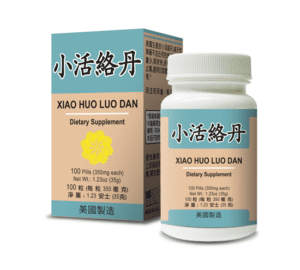Your cart is currently empty!
(Zhi) Chuan Wu
English Name: aconite wutou (prepared), Sichuan aconite root (prepared), mother root of common monk’s hood (prepared)
Pharmaceutical Name: Radix Aconiti Preparata
Medica Category: Interior-Warming Herbs
Properties: Chuan Wu enters the Liver, Spleen, and Heart channels; it is acrid and bitter in nature and hot in temperature.
What is Chuan Wu?:
The Chinese Herb Fu Zi is the prepared root of aconite (aka common monk’s hood—Aconitum carmichaeli Debx.). The aconite considered the most effective grows in modern day Jiangyou in Sichuan province (but the species is cultivated in many areas throughout China). The plant itself can grow to about 5-6 ft. tall and produces beautiful, deep purple flowers that resemble a monk’s hood. This herb is toxic in its unprocessed form (see safety notes below).
Traditional Chinese Medicine (TCM) Therapeutic Actions of Chuan Wu:
Chuan Wu dispels wind and disperses cold to treat bi zheng (painful obstruction syndrome) to treat pain caused by wind and dampness (e.g. headaches, joint and muscle pain, angina, hernia due to cold etc…)
Chuan Wu has an acrid, dispersing nature and as such is used topically to address chronic yin sores (i.e. non-healing abscesses and sores and do not show heat signs).
Historically, Chuan Wu was used in its raw form in combination with unprocessed Fu Zi, unprocessed Tian Nan Xing, and Mu Xiang to address cases of unconsciousness with deviation of the eyes and mouth and a roaring sound of phlegm in the throat. Chen & Chen (p. 443) note that “this is an extremely rare exception for which one would use the unprocessed form [of these three herbs]” as these three herbs are extremely toxic in their raw forms.
–safety notes:
Chuan Wu is contraindicated for pregnancy.
Consumption of alcohol is contraindicated with the intake of Chuan Wu.
Chuan Wu is contraindicated in patients with yang excess and yin deficiency (“false cold and true heat” in TCM parlance).
Unprocessed aconite is highly toxic; Chuan Wu, then, is processed (or prepared) aconite. One common (traditional) method of processing is to soak the raw root in brine, boil it for 4-6 hours, and rinse thoroughly with water (Chuan Wu should then be pre-decocted for another 30-60 minutes before adding other herbs to the formula being made). Done properly, this reduces the toxicity of the raw herb by 99.5% (from Chen & Chen, pg. 439). Adverse reactions come from two sources: overdose of properly processed aconite or improperly processed aconite (i.e. shortcuts taken and/or chemicals used). It is therefore important to know and trust your source when using this herb.)
This is not an herb to be treated lightly or to be experimented with by people who are not properly trained in the practice of Traditional Chinese Medicine (there are many other technical TCM considerations to the use of Chuan Wu that are beyond the scope of this discussion); so, please do not use Chuan Wu without supervision of a trained TCM practitioner.




